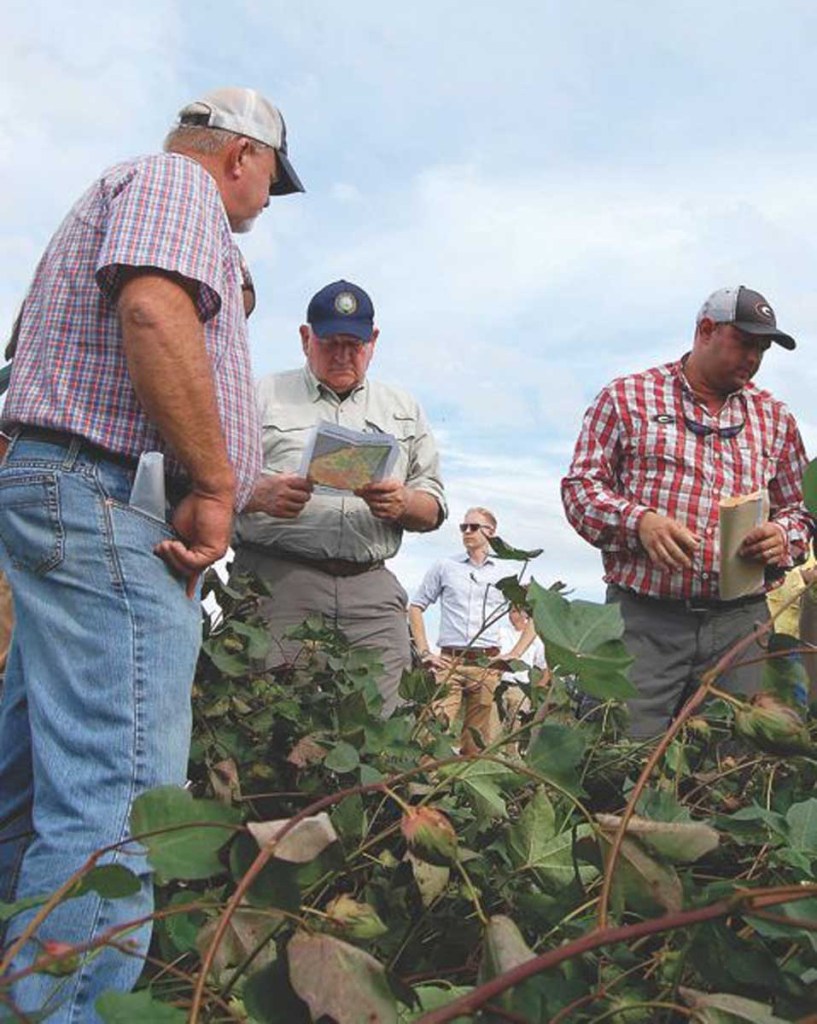US Ag Secretary Perdue examines fields damaged by Irma
Published 2:26 pm Monday, September 18, 2017

- U.S. Secretary of Agriculture Sonny Perdue, center, examines a cotton field damaged by wind and rain from Tropical Storm Irma at a Colquitt County farm.
MOULTRIE, Ga. — It’s been more than a half decade since former Gov. Sonny Perdue gave his last state of the state address.
On his return to Georgia on Friday as U.S. secretary of agriculture, he found that the state’s farmers could be in a potentially perilous state due to Tropical Storm Irma’s Monday rampage.
Spending the last of three stops at a Colquitt County farm, Perdue examined cotton in several fields and heard from growers how much damage they could be facing.
Cotton growers could be looking at losses of anywhere from 10 to 40 percent, said Bart Davis, as the group accompanying Perdue and Georgia Commissioner of Agriculture Gary Black stopped in one of Davis’ fields where cotton had been defoliated.
“At 10 percent, that’s a $75 per acre loss,” he said. “On all the acres in Georgia that’s $100 million. If it goes up to 20 percent, that’s $200 million. I’m out $200,000 to $250,000.”
Cotton in the field was showing damage from the wind and rain.
In a second field the cotton bolls were drooping and stalks were twisted. Much of that cotton, which had not been defoliated, is on the ground and will rot, Davis said. He said he is not sure how farmers can harvest the cotton due to the condition it was left in by the wind.
Colquitt County extension agent Jeremy Kichler told a reporter that defoliated cotton that was blown on the ground during the storm was raked up for testing.
“We weighed it, ginned it,” he said, at the University of Georgia’s micro gin in Tifton.
Those tests indicated that losses could be 200 to 400 pounds per acre. A good cotton yield is about 1,500 pounds per acre.
Perdue said he was told that the state’s growers were looking at a “bumper crop” for the year before the storm struck. He pledged that local, state and federal officials will work to assist farmers.
“We’re going to be as quick and compassionate as we can,” he said. “Insurance doesn’t make up for a bumper crop. Insurance (just) makes it possible for you to do it again next year.”
Davis said that his losses, while considerable, are not thought yet to be at a level that would trigger crop insurance payments.



